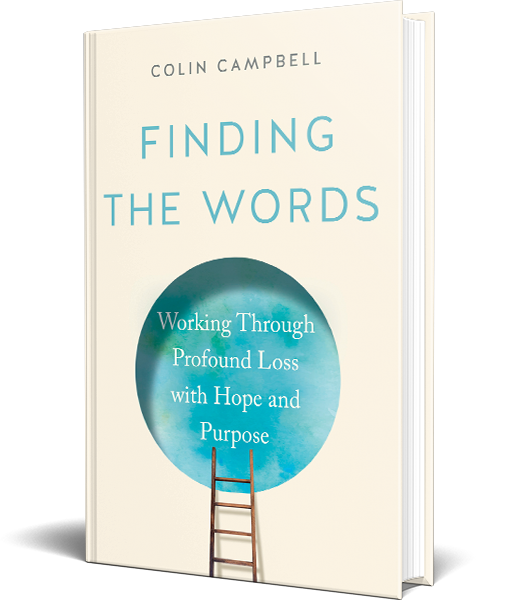Excerpts
By far, the most common phrase that gets offered up as condolence to people in grief is “There are no words.” We encountered this unhelpful phrase over and over again. It was shocking how often people would say it, or email it, or write it on their condolence cards. Apparently, somewhere along the line, our culture teaches us that this is a benign, acceptable response to grief. I understand the idea behind it. It is saying that your loss is so overwhelming and tragic that no words are adequate to express my condolences. And for those who are frightened of saying the wrong words, it must seem like the safest of bets to excuse yourself from trying to say any words at all. Also, either subconsciously or by design, it acts as a perfect conversation killer. It immediately ends any chance of a dialogue about grief. It’s telling the mourner that we can’t really discuss their grief because there are no words that would be applicable. This empty phrase encapsulates all that is wrong in how our society handles grief. We need words to process our grief, and if the rest of the world is telling us, literally, “there are no words,” then we are going to struggle and feel alone and abandoned in our pain.
The fact is, if you love someone, you will lose someone. Or they will lose you. Love and loss are inextricably linked. Grief is a universal human experience. We will all feel the pain of loss. We teach our children about love from the day they are born, and yet we keep death and grief shrouded in mystery.
I find myself confronted on a daily, sometimes even hourly, basis with a stark decision: do I avoid thinking about Ruby and Hart and all that I have lost, or do I go ahead and open my aching heart to even more pain? Of course, I desperately want to avoid that pain. I’m always tempted to avoid looking at their pictures, or talking to their friends, or reminiscing with Gail about some sweet memory. I want to avoid, avoid, avoid. I want to protect myself because I’ve already suffered so much. But then I remind myself to take a breath and lean into the pain, because I don’t want to hide from Ruby and Hart. I want to access all my memories of them. I want to look at their pictures, and feel the love we had for each other then, and the love I have for them now. I want to weep for them, for their loss, for their lives, which were stolen away. It seems to me that if I ever want to feel joy or happiness again, I have to embrace the pain. I don’t get one without the other. So I lean into my grief. Not every time, mind you. I have learned that I need to pace myself and regularly recharge my batteries with some healthy self-care. Whatever loss you are surviving, this is the central challenge: how do we keep our hearts open to the pain, yet still allow ourselves to experience the joys of life as well?
Sharing one’s grief is an act of bravery. Wading straight into the pain of loss is much more difficult and courageous than staying silent and pretending to be unaffected. The easiest thing to do is act tough and independent; the much harder choice is to stand before others and allow yourself to feel the pain. And ask for their help.
As I continue to move forward through grief it can be emotionally confusing to feel less and less in crisis. The more adjusted I become, the more emotional dissonance I experience. And with that dissonance comes guilt. How can I be laughing with Gail? How can I be teaching? How can I be writing a book about grief? Shouldn’t I be out of my mind and wailing uncontrollably? Ironically, the better I am able to navigate my grief, the more guilt I feel.


